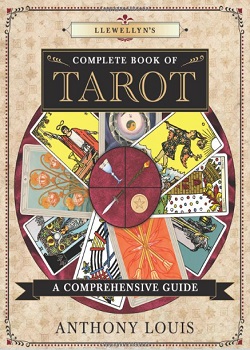Your Chosen Card – Three of Swords Reversed Thoth Deck

When reversed, the Three of Swords implies that you are not allowing yourself to grow as a result of your suffering. Rather than hanging on to hard feelings and keeping a dispute going, it may be time to bury the hatchet and clear the air. Clinging too long to rancor and sadness will only result in prolonged heartache. Consider the five stages of grief outlined by Elisabeth Kübler-Ross (1969): (1) denial and isolation, (2) anger, (3) bargaining, (4) depression, and finally (5) acceptance. The Three of Swords is about the process of grieving and ultimately accepting and letting go in order to restore balance in your life (Saturn in Libra).
Keywords Reversed: Stormy weather for the emotions, heartache, breakup, anguish, tears, sadness, loss, grief, sorrow, alienation, lost friendship, miscarriage, death of a loved one, painful separation, rupture, loss of love, divorce, unhappiness, betrayal, a broken heart, distress, affliction, feeling under the weather, illness, quarrels, disruption, interrupted plans, disappointment, wounds, a broken heart, misfortune, suffering.
Timing: 10 Libra20 Libra. Tropical, 3 October12 October. Sidereal, 27 October5 November.
Astrology: The stern taskmaster Saturn (exalted) in the second decan of airy Libra, also the realm of the Queen of Swords (Water of Air) and Justice (Libra). Saturn is linked to the World.
Number Symbolism: 3 – fertility, creativity, a triadic relationship, the first fruits of a joint venture.
Etteilla: Separation, estrangement, rupture, absence, departure, severance, detachment, aversion; (R) bewilderment, confusion, distraction, mental alienation, insanity, error, loss, miscalculation, detour.
When Three of Swords is reversed you can pretty much take it that life is going well but that’s when life takes us by surprise. If Three of Swords is unclear it may help to choose a card from the Major Arcana to provide more insight into what it is Three of Swords is trying to tell you. If you had a particular issue in mind, or want to seek clarification on something else, you can also choose again to get more guidance.

This chosen card is part of your reversed card reading for Three of Swords using cards from the Thoth Tarot Deck. You will find many more tarot pages that will be of great help if you need tarot card meanings. Use the search at the bottom of the page. We have some amazing tarot books for you to browse. Please see below.
Here are some snippets from a few of my favorite books

Book Details
Complete Book of Tarot: When reversed, the Three of Swords implies that you are not allowing yourself to grow as a result of your suffering. Rather than hanging on to hard feelings and keeping a dispute going, it may be time to bury the hatchet and clear the air. Clinging too long to rancor and sadness will only result in prolonged heartache. Consider the five stages of grief outlined by Elisabeth Kübler-Ross (1969): (1) denial and isolation, (2) anger, (3) bargaining, (4) depression, and finally (5) acceptance. The Three of Swords is about the process of grieving and ultimately accepting and letting go in order to restore balance in your life (Saturn in Libra).
Complete Book of Tarot: The Italian artists who painted the first tarot decks added a fifth, or trump, suit to the four standard suits to create a deck for playing a game similar to modern bridge. The early tarot decks varied in the total number of cards contained. As the tarot deck continued to evolve, the total number of cards eventually settled at seventy-eight.
- Do get in touch if you looked for Three of Swords and we don’t have it listed. We would be more than happy to source the information for you. We hope you visit again for more online tarot information!
Complete Book of Tarot: A need to return to the lesson of the previous card in the sequence (an idea of Paul Fenton-Smith).